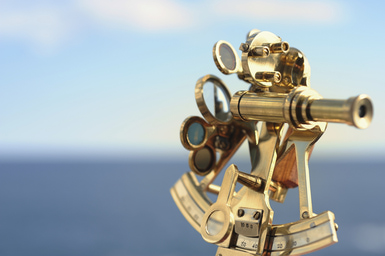People from the older times did not benefit from Global Positioning System which is also known as GPS to help them find their way or navigate their way to the vast seas. How do they cope up without this modern system that we have nowadays? The answer will be…celestial navigation.

You may be asking “what is celestial navigation” and “how does it work”. Celestial navigation is the old GPS. It works with the use of one heavenly body (like sun, moon or a planet) and a noticeable scope or horizon. Usually, our ancestors use the sun as the most common determiner of their location. The information they gathered was painstakingly put down into papers and was archived. This is currently used by our modern GPS.
The most ordinary type of celestial navigation used is ‘celestial line of position.’ It entails the navigators to use at least two heavenly bodies like the sun and a planet. They also take note of their elevation from the noticeable scope or horizon. Using these two heavenly bodies plus their angular position, they can then determine their location. Not only planets, the sun or the moon can be used for this type of navigation. The stars play their vital role, too. Remember that they have their own positions that can help determine exact points of setting. Tools such as sextant and octant take part in knowing more specific data. In much later times, nautical almanacs provided more accurate help for navigators.
Cool isn’t it? So when did this method occur? In 1837, the concept of celestial navigation was discerned by a sea captain by the name of Thomas Hubbard Sumner. He based navigation through observing the heavenly bodies and their location. He was able to determine their setting in longitude and latitude. Later, his concept was called ‘celestial line of position.’
In conclusion, what they have in GPS nowadays are all based on these ancient methods of navigation. And yes, we all owe it to men like Thomas Hubbard Sumner.
